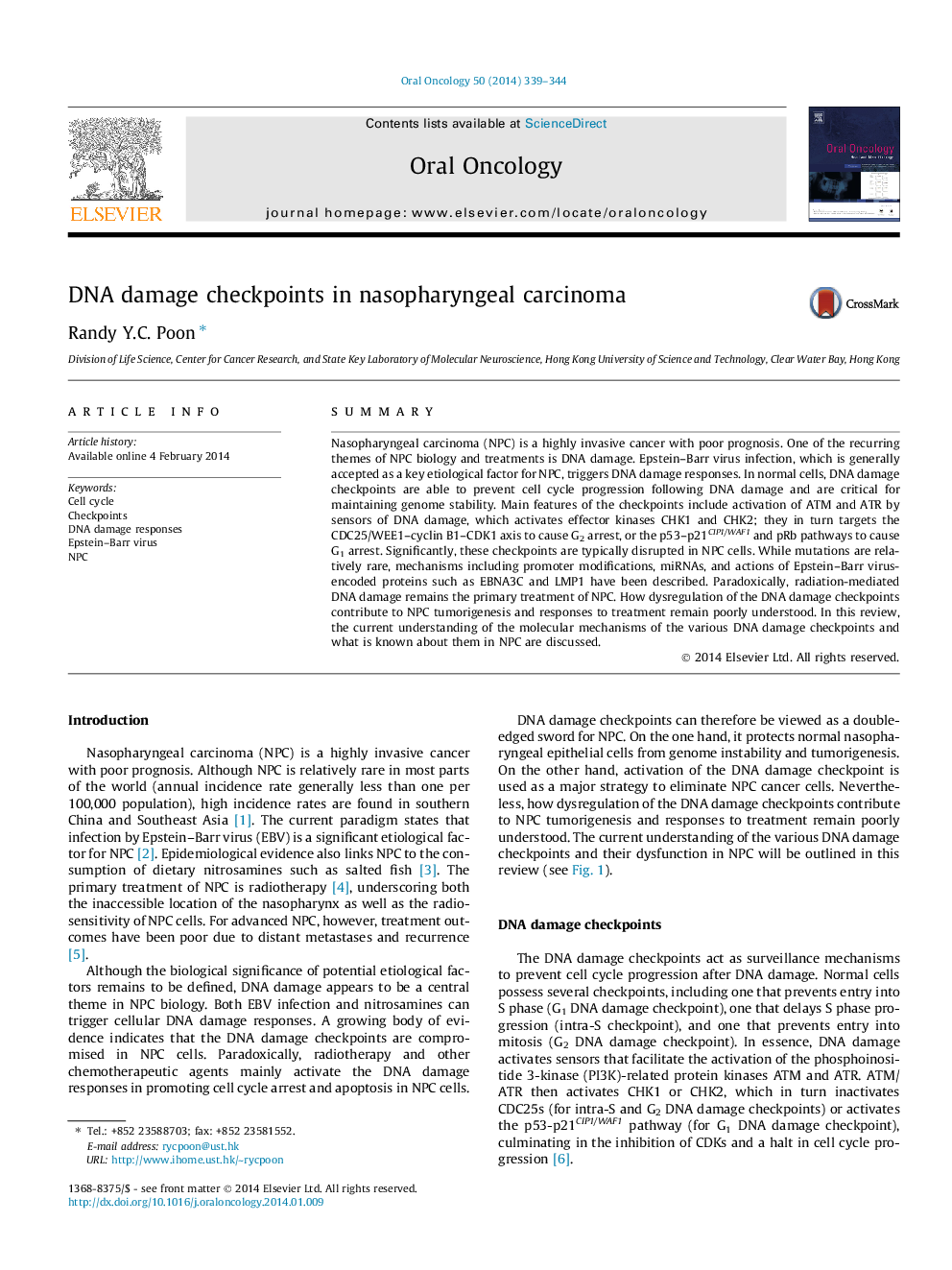| Article ID | Journal | Published Year | Pages | File Type |
|---|---|---|---|---|
| 3164236 | Oral Oncology | 2014 | 6 Pages |
SummaryNasopharyngeal carcinoma (NPC) is a highly invasive cancer with poor prognosis. One of the recurring themes of NPC biology and treatments is DNA damage. Epstein–Barr virus infection, which is generally accepted as a key etiological factor for NPC, triggers DNA damage responses. In normal cells, DNA damage checkpoints are able to prevent cell cycle progression following DNA damage and are critical for maintaining genome stability. Main features of the checkpoints include activation of ATM and ATR by sensors of DNA damage, which activates effector kinases CHK1 and CHK2; they in turn targets the CDC25/WEE1–cyclin B1–CDK1 axis to cause G2 arrest, or the p53–p21CIP1/WAF1 and pRb pathways to cause G1 arrest. Significantly, these checkpoints are typically disrupted in NPC cells. While mutations are relatively rare, mechanisms including promoter modifications, miRNAs, and actions of Epstein–Barr virus-encoded proteins such as EBNA3C and LMP1 have been described. Paradoxically, radiation-mediated DNA damage remains the primary treatment of NPC. How dysregulation of the DNA damage checkpoints contribute to NPC tumorigenesis and responses to treatment remain poorly understood. In this review, the current understanding of the molecular mechanisms of the various DNA damage checkpoints and what is known about them in NPC are discussed.
